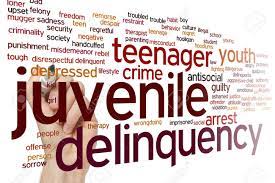Juvenile delinquency
Apr 13, 2023
This paper explores the risk groups that are most likely to engage in juvenile delinquency and how the criminal justice system responds when those youth do come into contact with the law. A discussion of prevention policies is included, along with an examination of current prosecution and punishment practices.
This paper then discusses how these strategies can be improved upon to better serve minors who have committed offenses in order to reduce recidivism rates among juvenile offenders. The goal of this research is to provide insight into what factors contribute to delinquency, as well as offering evidence-based solutions in order to create a more effective approach for dealing with juvenile crime. By understanding which populations are most at risk, it is possible to develop targeted approaches that have been proven effective in addressing the issue of juvenile delinquency.
Juvinile delinquency is a major social problem that affects many countries around the world. There are several risk factors associated with juvenile delinquency, including poverty, exposure to violence, family dysfunction, and substance abuse. It is important to understand which groups of youth may be more vulnerable to delinquent behavior in order to properly address the issue. Studies have identified high-risk populations such as racial and ethnic minorities, children of single parent households, and youth from low-income neighborhoods as being particularly susceptible to engaging in juvenile crime.
In response to this issue, prevention policies have been developed by various governments in order to reduce the risk of delinquent behavior among minors. These strategies include providing educational programs on topics like conflict resolution and anger management, increasing access to mental health services, and promoting positive activities such as sports and volunteer opportunities. It is important to note that prevention policies must be tailored to the specific needs of each community in order for them to be effective.

When individuals do come into contact with law enforcement, it is important for prosecutors and judges to consider the age of the offender when determining punishment. In many cases, juvenile offenders are eligible for participation in rehabilitation programs or community service instead of traditional incarceration. This allows minors to learn from their mistakes without having a permanent criminal record on their record, which can lead to more successful outcomes.
